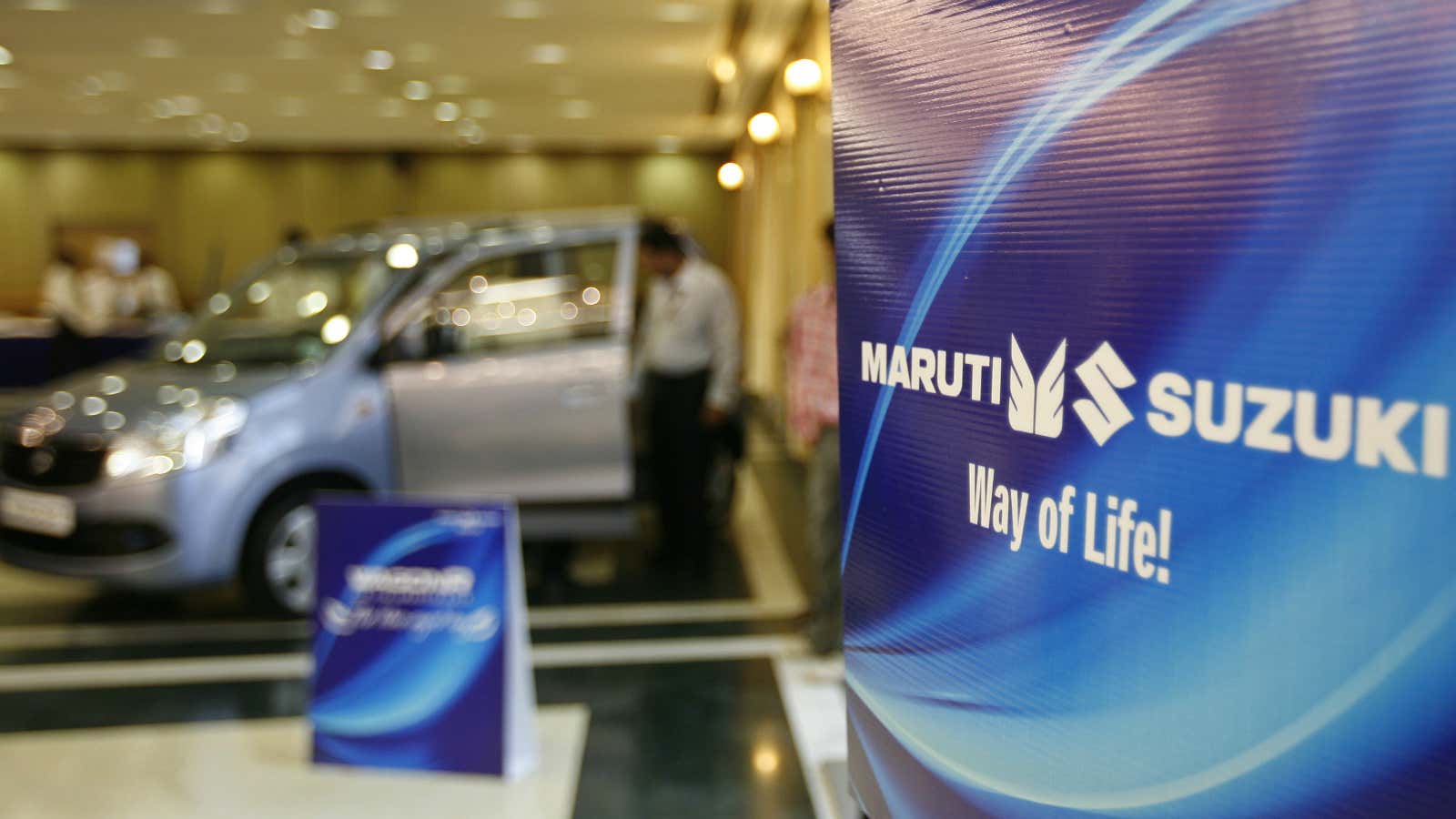In India’s automobile market, small is beautiful. For decades, the country’s largest carmaker, Maruti Suzuki, has used India’s affinity for small-sized cars to its advantage.
Now, as Asia’s third largest economy looks to bring in stricter safety and emission regulations, Maruti Suzuki’s small cars—and petrol engines—can help the company remain ahead of the pack.
“We believe small petrol cars are likely to see the least cost impact over the next five years, while medium and heavy commercial vehicles (MHCVs) and two-wheelers may have a much higher impact,” brokerage firm Nomura said in a report released on April 13. “On a relative basis, MSIL (Maruti Suzuki India Limited) is likely to see a much lower impact compared to Ashok Leyland (AL), M&M and Hero Motocorp (HMCL).”
In January, the Narendra Modi government announced stricter auto emission norms, proposing the advancement of the tougher Euro-VI by a year to April 2020. This means automakers have to tweak their product plans, while also investing over Rs50,000 crore ($7.5 billion) in new technologies, eventually hiking vehicle prices.
Nomura estimates the cost impact of the new norms to be between Rs10,000 ($150) and Rs15,000 ($225) for petrol cars, and a steep Rs50,000 ($751) for diesel vehicles. “MSIL has the highest exposure to small petrol cars and is, thus, best positioned relatively, in our view,” Nomura’s report said. Maruti’s most popular small petrol cars include the Alto, Wagon R, Celerio, Swift and Baleno.
“Certainly, Maruti has an advantage,” Abdul Majeed, a partner at consultancy firm PwC said. “Small petrol cars will be driving sales in the coming years when they new norms kick in.”
Moreover, Maruti also stands to gain from India’s gradual move towards CNG, away from the expensive and polluting diesel. It is the only company that currently makes vehicles with factory-fitted CNG engines.
Maruti already controls about 50% of the Indian passenger car market. In 2015, it reported revenue of Rs49,970 crore ($7.6 billion) with a net profit of Rs3,711 crore ($566.9 million). Set up in 1981 as a joint venture between the Indian government and Suzuki Motor Corporation, the company started by producing the iconic Maruti 800, a small petrol car which eventually went on to sell more than two million units.
Since then, Maruti has consistently focused on small petrol cars with impressive mileage and inexpensive servicing. One example is the 800cc Maruti Alto, which has sold more than three million units so far.
Yet, despite its past success, Maruti will be going up against both domestic and international carmakers who are actively scaling up their small car production in India. Over the last year, Tata Motors launched two models—the Tiago and Bolt—while global players, including Renault, Ford, and Volkswagen, have also launched new small cars.
“All the global companies are now looking at India to drive sales and they are all focused on small petrol vehicles to do that. So, going forward, Maruti will face some serious competition from global automakers such as Ford, GM, Toyota, Renault, and even Indian companies such as Mahindra,” said Majeed. “The global focus is now shifting towards petrol cars.”
